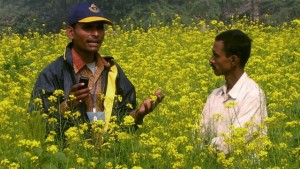Home » Commentary » Opinion » Food security key to stability
· Ideas@TheCentre
 The recent drought and consequential shortage of food and deterioration of arable lands in Syria undoubtedly encouraged the country’s descent into violence and civil unrest.
The recent drought and consequential shortage of food and deterioration of arable lands in Syria undoubtedly encouraged the country’s descent into violence and civil unrest.
The food insecurity in Syria led to poverty and unemployment, making the country more easily vulnerable to exploitation by extremist groups and terrorism.
There is no doubt that internal food insecurity helps trigger the collapse of a nation’s economy, and often the collapse of a nation itself.
With closely comparable circumstances in countless other regions across the globe, it is a concerning prospect that the world’s population will reach 9.1 billion by the year 2050. More concerning however, is the expectation that nearly all of this population increase will occur in developing countries. 75% of the poor in developing countries live in rural areas and their incomes are largely linked to agriculture.
For over a decade now, conflict has concentrated among these developing countries, and the inefficient and potentially threatened production of food in these regions is becoming increasingly problematic. With the rate of population growth exceeding that of food production, hunger will persist and conflict will thrive.
Providing expertise in areas such as farm and supply chain management, crop production, agronomy and ICT (Information and Communications Technology) will undoubtedly improve food production capabilities in these developing regions.
As an example, with the increasing affordability of technology, personal devices such as mobile phones and tablets have proven immensely beneficial for farmers in developing countries. Such an accessible tool — which can provide real-time agricultural information and also enable the sharing of experience and knowledge between farmers on a global platform — has already begun to improve food productivity in some of these regions.
Through further research and practical assistance, the agricultural sector of these developing countries will prosper, therefore promoting innovation and driving economic growth. In turn, this will alleviate to some extent the hardships created by poverty and unemployment as a result of diminishing food production, gradually building food security, a stable economy and a bulwark against radicalisation and terrorist exploitation.
Aalya Sukkarieh is a Year 10 student at St George Girls High School, undertaking work experience at the Centre for Independent Studies.
Food security key to stability